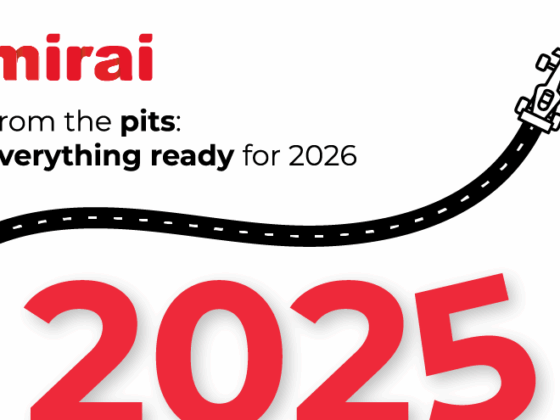
We can expect 2025 to be fast and fluid. Moore’s Law, with the premise that the number of transistors in an integrated circuit doubles roughly every two years, and other benchmarks for brisk business changes across time, seem quaint, if not downright prehistoric.
At the turn of the last century, we wondered if we could manage changing the dates on our computers from the 20th to 21st century without some business disruption, the so named “Y2K” challenge. Nothing happened.
By comparison, 25 years later we wonder what human jobs and professions will survive in light of the incredibly rapid rise of artificial intelligence.
On the plenary panel at last fall’s Destination AI conference, executives from companies including Microsoft, Hilton and Thayer Ventures opined on the fast-paced change coming in areas including hotel bookings, staffing, guest service and business management.
Clearly, a lot will be changing in 2025—and quickly.
What areas are disruption likely to move the fastest and how can we try to stay ahead of it in the new year and leverage it for the benefit of our businesses?
Everything Everywhere All At Once
It’s no secret that tech innovation is the driving force behind rapid change. Innovation is driving rapid change everywhere—and everything everywhere is intertwined with social and political policy.
As Kevin Jacobs, CFO and president of global development for Hilton, has noted, innovation in areas such as automated revenue management are the “secret sauce” to unprecedented profitability and rapid revenue growth. Much of the same can be said in areas including property management, guest communications and efficient labor deployment.
And as much as we need to pay attention to specific hotel industry innovations, we must stay attuned to forces driving change across other industries and on a global level. Consider the new “DOGE” program, led by technologists, who are looking to promote more governmental efficiency. What might all of this mean to the hotel industry? To SBA and other lending programs? To the investment decisions of lenders and investors?
Meanwhile, new tariffs could impact the cost and availability of internationally sourced goods and services, which would have a large impact on procurement and for things like furniture, fixtures and equipment (FFE), needed for any hotel.
The potential impacts are breathtaking. Analyzing likely key hotel operating trends in Europe, experts at the 2024 EMEA Hotel Asset Managers Association’s Annual Meeting focused less on traditional factors, such as intra-market travel patterns, local economies and EU regulations, and more on global geopolitical instability, regional economic conflict and the impact of AI.
Today, every aspect of the hotel business is intertwined with the pace of social, political and technological change worldwide.
Advancing Technology, Maintaining the Human Touch
It’s clear that AI, advancing automation and the rise of a new “agent-based economy” will drive business decision-making. There has been a clear call to return to the roots of hotel service: impeccable guest service driven by curated human interaction.
Even the most radically committed technology visionaries concede that core human interactions are the key to great service and will never be supplanted by machines.
Traditional luxury brands and purveyors have never been stronger in their offerings. Paradoxically, as the pace of innovation outstrips most everything in 2025, there may be an equally strong push to return to the original basis of the hotel business—personalized guest service delivered by well-trained human beings. Education, training and a return to traditional service practices will be key.
In the hotel space, the rise of the machines may also spur an unprecedented need to reassert and expand the role of humans.
Doing Good, Doing Well
Sustainability, environmental consciousness and the promotion of a diverse, fairly compensated workforce are no longer “nice to haves” for hotels—they are must haves.
ESG programs have become integral pieces of corporate policy at all the major brands, and an important part of corporate governance as well.
A midyear survey of more than 200 hotel professionals conducted by the Hotel Industry Executive Women’s Innovation Council revealed that more than nine in 10 hoteliers believe greater collaboration among technology providers is essential, with a new focus women’s leadership a critical factor to making progress.
And the broad concerns of women’s equity, leadership and mentorship are not limited to women alone—a story by HOTELS magazine pointed to multiple areas in which the advancement of women is critical to industry performance across the board.
The key questions: As an industry, are we moving quickly enough to meet the rapidly changing demographics and demands of our guests, associates and partners? What are the key industry benchmarks to achieve in each of these areas in 2025? And Will the concomitant speed of change in technology, finance and other areas help or hinder the progress?
What’s Next
Back in the early 2000s, thought leaders spoke of the rise of a “global village” in which newly connected countries, populations and businesses became dependent on one another for their development, progress and well-being.
Today, the village feels more like a global speedway.
Moderating panels and roundtables of industry leaders, I usually conclude the conversations by asking each executive to make a prediction for the year ahead. What will we be talking about and thinking about at the end of 2025?
I’ll venture that the most important topic will be our ability to monitor, measure, harness, control and leverage the pace of change that has enveloped us.
Michael Frenkel is a communications strategist, corporate advisor and investor in the hotel industry.








